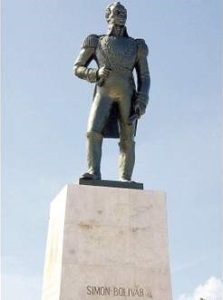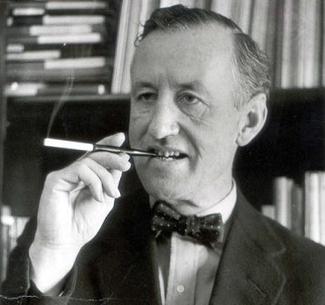
The famous and the infamous sought reprieve from the spotlight, using Jamaica as a hideaway from the constant beat of stardom, or cooling their heels on the island when things got too hot for them in their country.
Simón Bolívar was the great liberator of Latin America, having a hand in the founding of Venezuela, Bolivia, Colombia, Ecuador, Peru and Panama, wresting them from Spain. He fled to Jamaica from Colombia and was exiled on the island for almost a year. Some of what he penned in his famous Letter from Jamaica, dated September 6, 1815, resonates today, 200 years after:
As for the heroic and unhappy Venezuela, her events have been so rapid, and her devastations such, that they have almost reduced her to absolute indigence and an appalling loneliness; even though it was one of the most beautiful countries … of America.
A famous line from the Letter was, “Do not adopt the best system of government, but the one that is most likely to succeed.” Bolívar was not committed to anyone form or type of government – monarchic, republic or parliamentary. He wanted to institute the best of each type while eschewing their shortcomings. “The Constitution will draw on all systems of government, but I do not want it to partake of all their vices.”
Since it gained independence in 1804, Haitian leaders have lived as exiles in Jamaica as the nation lurched through political turmoil. “In the period 1818-1902, Haiti had fifteen heads of state, eleven of whom spent time in Jamaica as exiles,” said Matthew Smith in Geographies of the Haitian Diaspora. Two died in Kingston, Jamaica’s capital. Fabre Nicholas Geffrard, president of Haiti from 1859-1867, died on December 31, 1878; and Michele Domingue, president for less than three months, December 27, 1869 to March 16, 1870, died on March 24, 1877.
The tradition of housing Haitian leaders in exile continued into the 21stcentury. Former Haitian President Jean Bertrand Aristide lived several months in Jamaica after he was overthrown in a coup in 2004, before settling in South Africa. He has since returned to Haiti.
One interesting side story was cited by Smith in Liberty, Fraternity, Exile: Haiti and Jamaica after Emancipation:
As Haitians slowly came to terms with the disastrous earthquake [of May 7, 1842] in the north, one of its survivors made a peculiar entry into Kingston. The man who appeared early in September 1842 was named Louis Henri Christophe and claimed himself a prince and relative of Haiti’s late King Henry [president of Haiti, 1807-1811, emperor 1811-1820]. Prince Christophe left the shattered northern department by steamer with a young female companion. Shortly after arriving in Kingston, he settled in a lodging house on East Street and lost no time in procuring the services of a Catholic clergyman to marry the couple.
Celebrities
Hans Sloane’s massive collection of about 71,000 artifacts and objects, some of which he collected while living in Jamaica between 1687 and 1689, provided the basis for the founding of the British Museum, the British Library and the Natural History Museum in London. Sloane, who married a wealthy Jamaican heiress, gaining much property through her, was given the disputed credit of inventing milk chocolate drink while in Jamaica. The recipe he supposedly concocted was believed to be that adopted by Cadbury’s, the well-known British chocolate company.

Ian Fleming wrote his James Bond books at Goldeneye, his hideaway in St. Mary, Northeast Jamaica, not far from Ocho Rios. Originally cited on 15 acres overlooking a cliff plunging into the Caribbean Sea, the novelist and former British spy created a secret alcove to indulge his limited literary talents. Goldeneye, now a tourist attraction, is a discreet getaway for the rich and famous.
Noël Coward, British playwright, composer, director and actor, created his own escape not very far from Goldeneye. Firefly, in the hills of St. Mary, where his remains lie, has hosted such persons as Queen Elizabeth II, Winston Churchill, Laurence Olivier, Sophia Loren, Elizabeth Taylor, Alec Guinness, Peter O’Toole and Richard Burton.
Australian-American actor Errol Flynn bought Navy Island, a 64-acre islet in Portland, eastern Jamaica. It was reportedly the scene of some wild Hollywood parties. Some claim that bamboo rafting was popularized by Flynn as a tourist attraction after he noticed banana farmers transporting the fruit on the Rio Grande from in the hills toward the port. Surely, Europeans and North Americans would enjoy sailing on bamboo through lush forest, Flynn concluded. Navy Island, now a tourist attraction, draws an exclusive set of visitors to Jamaica.
Harry Belafonte, born in Harlem in New York to Jamaican parents, spent part of his childhood in Jamaica, from 1932-1940. This Jamaican experience lived with him, through his song and music. The Banana Boat Song, traditionally dating to the early 20th century was immortalized by Belafonte in 1956 as Day O.
I had the honor of conducting one celebrity wedding. In 2005, three-time world heavyweight boxing champion, Lennox Lewis, married Violet Chang, a former Miss Jamaica runner-up, at the William Knibb Memorial Church in Falmouth on Jamaica’s north coast. Lewis, who won an Olympic gold medal in 1988, was born in England but grew up in Canada. He returned to the island home of his parents and lived in Montego Bay, Jamaica’s tourism capital.
Other celebrities have been rumored to live quietly in Jamaica or to have a second home there. They choose to live under the radar, enjoying paradise in quietude.
Eron Henry is author of Reverend Mother, a novel. Ole Time Sumting blog was recognized with an Award of Merit by the Religion Communicators Council in April 2018. You may listen to his most recent podcast on Soundcloud or YouTube.
Interesting – I didn’t know U did Lennox Lewis’ wedding